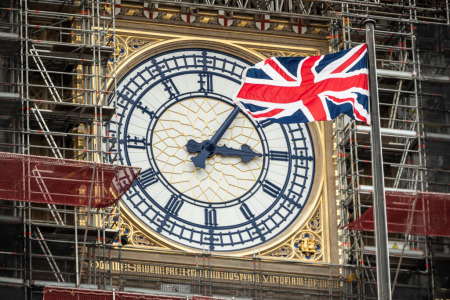UK Supreme Court denies request to add 'X' gender option to passports

The United Kingdom’s Supreme Court has rejected the request of a “non-gendered” activist to establish a third gender option on British passports for those who do not identify as male or female.
In a decision handed down Wednesday, a five-judge panel of the U.K. Supreme Court unanimously agreed that Article 8 of the European Convention on Human Rights does not require a country to include a non-gendered “X” option on its passports.
“The conclusion is that the Convention imposes no such obligation, at least at the present time,” the ruling states.
“[T]he European court does not appear to have considered the issue raised in these proceedings,” the panel determined, adding that “there is no reason why that assessment of the position at the European level should not be followed at the domestic level in the application of the Human Rights Act.”
The judgment, written by Supreme Court President Robert Reed, asserted that “in these circumstances, the appeal should be dismissed.”
The ruling followed an appeal filed by Christie Elan-Cane, an activist who asked the court to review a 2020 decision from the England and Wales Court of Appeal that reached the same conclusion.
Elan-Cane was born a biological female who underwent a double mastectomy and hysterectomy more than three decades ago and now identifies as non-gendered.
Additionally, the outspoken activist has asked Her Majesty’s Passport Office and its predecessor, the U.K. Passport Authority, whether it will allow non-gendered passports multiple times over the span of more than a quarter-century.
Elan-Cane’s legal fight on passports dates back to 2017, when the activist alleged that failure to include a third gender option on British passports violated Articles 8 and 14 of the European Convention on Human Rights.
Article 8 declares that “Everyone has the right to respect for his private and family life, his home and his correspondence” and that “there shall be no interference by a public authority with the exercise of this right except such as is in accordance with the law and is necessary in a democratic society in the interests of national security, public safety or the economic well-being of the country, for the prevention of disorder or crime, for the protection of health or morals, or for the protection of rights and freedoms of others.”
Article 14 states that “the enjoyment of the rights and freedoms set forth in this Convention shall be secured without discrimination on any ground such as sex, race, colour, language, religion, political or other opinion, national or social origin, association with a national minority, property, birth or other status.”
Reed defended the requirement for those applying for a passport to select either male or female as their gender.
“[T]he purpose of providing that information is not to inform HMPO as to the applicants’ feelings about their sexual identity, and the applicants are not being forced to lie about those feelings," the ruling states.
He referred to gender as “a biological detail which can be used to confirm their identity by checking it against the birth, adoption or gender recognition certificates provided and other official records.”
“It is therefore the gender recognised for legal purposes and recorded in those documents which is relevant,” Reed contends. ‘The gender recorded on the passport can also be used for other purposes … which are associated with the passport-holder’s appearance and physiology rather than their innermost thoughts.”
The decision noted that “there is no legislation in the United Kingdom which recognises a non-gendered category of individuals.” Reed maintained that the gender markers policy is consistent with “legislation across the statute book,” which “assumes that all individuals can be categorised as belonging to one of two sexes or genders.”
Elan-Cane announced her intention to appeal the ruling to the European Court of Human Rights in Strasbourg, France.
“I very much regret to inform everyone that justice was not served today,” Elan-Cane wrote. “The UK government and judicial system are on the wrong side of history.”
THE UK GOVERNMENT AND JUDICIAL SYSTEM ARE ON THE WRONG SIDE OF HISTORY - THIS IS NOT THE END - WE ARE GOING TO STRASBOURG
— Christie Elan-Cane (@ChristieElanCan) December 15, 2021
Several Western countries have already introduced a third gender option on their passports, including Canada. Earlier this year, the Biden administration celebrated the issuance of the first gender-neutral passport, which included an “X” option for those who do not identify as male or female.
Ryan Foley is a reporter for The Christian Post. He can be reached at: ryan.foley@christianpost.com





















